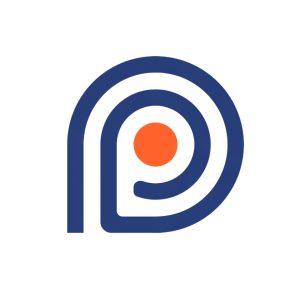Predictive Oncology Expands the Application of its Live-Cell Tumor Platform to De-Risk Drug Discovery and Accelerate Pipeline Development
Rhea-AI Summary
Predictive Oncology Inc. (NASDAQ: POAI) has expanded applications for its AI-driven drug discovery platform to address patient heterogeneity and improve drug development success rates. The company's approach integrates artificial intelligence, machine learning, and a biobank of cryopreserved patient-derived tumor samples to introduce patient heterogeneity earlier in the drug discovery process. This strategy aims to increase the Probability of Technical Success (PTS) for drug candidates, potentially reducing failures in late-stage clinical trials.
The platform's capabilities include comprehensive patient sample response analysis, biomarker discovery, clinical trial optimization, and target validation. By leveraging these tools, Predictive Oncology seeks to help pharmaceutical companies make more informed decisions about drug development, potentially accelerating timelines and improving resource allocation in oncology R&D.
Positive
- Expanded AI platform applications to address patient heterogeneity in early drug discovery stages
- Potential to increase Probability of Technical Success (PTS) for drug candidates
- Capability to facilitate biomarker discovery and clinical trial optimization
- Extensive biobank of cryopreserved patient-derived tumor samples across 137 tumor types
- Platform's potential to accelerate drug development timelines and improve resource allocation
Negative
- None.
News Market Reaction
On the day this news was published, POAI gained 1.16%, reflecting a mild positive market reaction.
Data tracked by StockTitan Argus on the day of publication.
Findings demonstrate real-world applications of Company’s AI platform to support biomarker discovery, clinical trial optimization and target validation
Proprietary tool accounts for patient heterogeneity and increases Probability of Technical Success
PITTSBURGH, Aug. 13, 2024 (GLOBE NEWSWIRE) -- Predictive Oncology Inc. (NASDAQ: POAI), a leader in AI-driven drug discovery, today announced that it has expanded the available applications for its platform to account for patient heterogeneity, de-risk drug discovery, and accelerate pipeline development.
Responding to the historically high failure rate in drug development in Phase II and Phase III clinical trials, the Company is utilizing its artificial intelligence, active machine learning capabilities, in a CLIA wet lab environment, to leverage its extensive biobank of cryogenically preserved patient-derived live-cell tumor samples, across 137 different tumor types accumulated over nearly two decades, to account for patient heterogeneity ahead of any clinical phase development work.
One of the primary reasons for these late-stage failures is that the heterogeneity of human subjects is not introduced until clinical trials are well underway. Predictive Oncology’s platform addresses this challenge by applying its unique assets and resources to introduce patient heterogeneity into the earliest phases of AI-driven drug discovery, thereby increasing the Probability of Technical Success (PTS), a key metric in target selection, clinical trial design and pipeline replenishment.
“The outputs of our platform are used to more comprehensively identify which patient samples responded and why, through the use of our deep machine learning and cellular analysis capabilities.” said Dr. Arlette Uihlein, SVP of Translational Medicine and Drug Discovery at Predictive Oncology. “These analyses utilize genomics, digitized pathology data, and phenotype profiling of heterogenous responses across drug treatments and across heterogenous patient cell populations.”
“Oncology drug discovery and development are time and resource intensive processes that, unfortunately, do not yield high rates of success when considering the relatively small number of compounds that are ultimately approved and made available to cancer patients,” stated Raymond Vennare, Chief Executive Officer of Predictive Oncology. “Our platform has successfully demonstrated an ability to increase the Probability of Technical Success for these compounds. The ability to accelerate drug development timelines would allow pharmaceutical companies to make critical go/no go decisions, redirect resources or reprioritize R&D efforts to pursue parallel or contingent drug development initiatives.
“Beyond addressing the responsiveness of patient tumor cohorts, these capabilities can identify which of the many tumor features that we have deployed in our modeling would be the most fruitful to exploit for potential new biomarkers, targets, or even drugs.
“The ability to facilitate biomarker discovery, refine clinical trial optimization and provide decision support, speaks to the broad versatility of our offering. Artificial intelligence is poised to play a rapidly increasing role in pharmaceutical R&D, and we are working to remain at the forefront of this exciting evolution,” Mr. Vennare concluded.
Predictive Oncology also announced today the release of a new white paper that discusses these capabilities in greater detail. The white paper can be accessed at: https://predictive-oncology.com/blog/heterogeneity
About Predictive Oncology
Predictive Oncology is on the cutting edge of the rapidly growing use of artificial intelligence and machine learning to expedite early biomarker and drug discovery and enable drug development for the benefit of cancer patients worldwide. The company’s proprietary AI/ML platform has been scientifically validated to predict with
Investor Relations Contact
Tim McCarthy
LifeSci Advisors, LLC
tim@lifesciadvisors.com
Forward-Looking Statements:
Certain matters discussed in this release contain forward-looking statements. These forward-looking statements reflect our current expectations and projections about future events and are subject to substantial risks, uncertainties and assumptions about our operations and the investments we make. All statements, other than statements of historical facts, included in this press release regarding our strategy, future operations, future financial position, future revenue and financial performance, projected costs, prospects, changes in management, plans and objectives of management are forward-looking statements. The words “anticipate,” “believe,” “estimate,” “expect,” “intend,” “may,” “plan,” “would,” “target” and similar expressions are intended to identify forward-looking statements, although not all forward-looking statements contain these identifying words. Our actual future performance may materially differ from that contemplated by the forward-looking statements as a result of a variety of factors including, among other things, factors discussed under the heading “Risk Factors” in our filings with the SEC. Except as expressly required by law, the company disclaims any intent or obligation to update these forward-looking statements.








